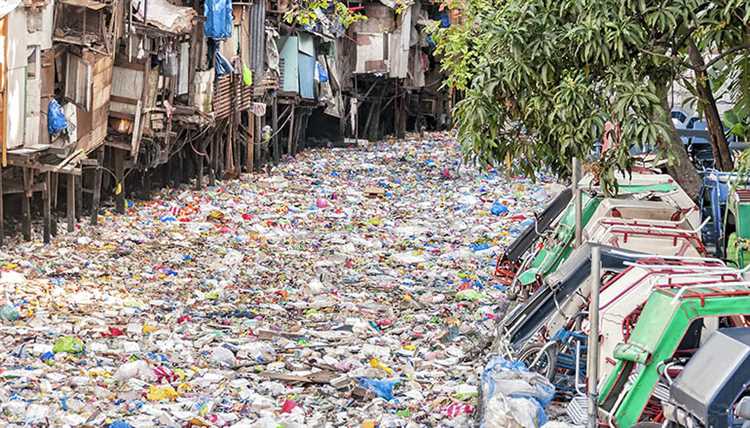
Plastic waste has become a significant environmental issue in recent years, with devastating consequences for ecosystems and human health. As a synthetic material that does not biodegrade, plastics can persist in the environment for hundreds of years, breaking down into smaller and smaller pieces but never truly disappearing. This persistence has led to the accumulation of plastic waste in landfills, rivers, and oceans, posing a severe threat to wildlife and delicate ecosystems.
The environmental impact of plastic waste is multifold. Marine animals often mistake plastic debris for food, leading to ingestion and subsequent suffocation or malnutrition. Plastic waste also entangles marine creatures, causing injuries and impairing their ability to swim or feed. Moreover, as plastics break down into smaller particles known as microplastics, they can infiltrate the food chain and accumulate in the bodies of animals and humans, posing a risk to our health and well-being.
Addressing the plastic waste problem requires a multifaceted approach that encompasses awareness, reduction, reuse, and recycling. Educating the public about the environmental impact of plastics is crucial in fostering responsible consumption patterns and reducing waste generation. Governments and businesses can implement policies and regulations to promote the use of biodegradable materials and discourage single-use plastics. Additionally, individuals can make a difference by opting for reusable alternatives, such as cloth bags and refillable water bottles, and by properly recycling plastic waste whenever possible.
In conclusion, plastic waste poses a significant threat to our planet’s ecosystems and human health. Understanding the environmental impact of plastic waste is the first step towards finding viable solutions. By raising awareness, reducing consumption, and promoting recycling, we can all contribute to a cleaner and healthier future, ensuring that plastic waste no longer wreaks havoc on our environment.
- The Growing Problem of Plastic Waste
- Impact of Plastic Waste on Wildlife and Ecosystems
- 1. Entanglement and Suffocation
- 2. Ingestion and Toxicity
- The Role of Microplastics in Environmental Contamination
- Effects of Plastic Waste on Human Health
- 1. Chemical Exposure:
- 2. Microplastic Ingestion:
- 3. Contamination in Seafood:
- Promoting Recycling and Waste Reduction
- Education and Awareness
- Implementing Recycling Programs
- Supporting Sustainable Alternatives
- Collaboration with Businesses
- Innovative Solutions to Combat Plastic Pollution
- 1. Biodegradable Alternatives
- 2. Advanced Recycling Technologies
- 3. Public Awareness and Education
- 4. Packaging Innovation
- Questions and answers:
- What are the main environmental impacts of plastic waste?
- How long does plastic take to decompose in the environment?
- What are some solutions to reduce plastic waste?
- Are there any negative effects of recycling plastic?
- How can individuals make a difference in reducing plastic waste?
The Growing Problem of Plastic Waste
Plastic waste has become a major environmental issue in recent years. With the rapid increase in global plastic production and consumption, the amount of plastic waste generated has reached alarming levels.
One of the main problems with plastic waste is its longevity – most plastics take hundreds of years to decompose. This means that once they are discarded, they can linger in the environment for a very long time, causing significant harm to wildlife, ecosystems, and human health.
The production and disposal of plastic also contribute to climate change. Plastic is made from fossil fuels, and the extraction and processing of these fuels release greenhouse gases into the atmosphere. Additionally, when plastic waste is burned or ends up in landfills, it can release toxic chemicals and further contribute to greenhouse gas emissions.
Another issue with plastic waste is its impact on marine life. Millions of tons of plastic end up in the oceans every year, endangering marine animals and disrupting fragile ecosystems. Plastic debris can be mistaken for food by marine animals, leading to injury or death. It can also entangle marine life, making it difficult for them to swim, hunt, and reproduce.
Fortunately, there are solutions to the growing problem of plastic waste. One approach is to reduce plastic consumption by choosing alternatives, such as reusable bags and bottles, and avoiding single-use plastics. Recycling and composting programs can also help divert plastic waste from landfills and reduce the demand for new plastics.
Legislation and policies are also essential for addressing plastic waste. Governments can implement bans or restrictions on certain types of single-use plastics, promote extended producer responsibility programs, and encourage the development of sustainable packaging alternatives.
Education and awareness are crucial as well. By educating individuals about the environmental impact of plastic waste and the importance of responsible consumption and disposal, we can foster a culture of sustainability and encourage behavior change.
In conclusion, plastic waste is a growing problem with severe environmental consequences. However, by taking action, implementing solutions, and raising awareness, we can mitigate the impact of plastic waste and move towards a more sustainable future.
Impact of Plastic Waste on Wildlife and Ecosystems
Plastic waste poses a grave threat to wildlife and ecosystems around the world. The increasing amount of plastic pollution in our oceans, rivers, and forests is causing significant harm to plants, animals, and entire ecosystems.
1. Entanglement and Suffocation
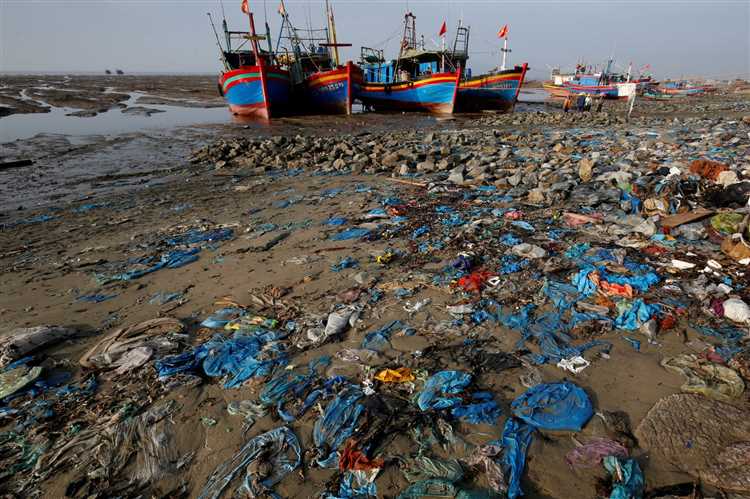
One of the most visible impacts of plastic waste on wildlife is entanglement and suffocation. Animals such as sea turtles, dolphins, birds, and seals often mistakenly ingest or become entangled in plastic debris. This can lead to injury or even death as they are unable to free themselves or breathe properly.
For example, thousands of marine animals die each year due to getting trapped in plastic bags, fishing nets, and other plastic waste.
2. Ingestion and Toxicity
Plastic waste is often mistaken for food by animals, leading to ingestion and subsequent health problems. Marine animals, including fish, seabirds, and mammals, are particularly affected by this issue. The toxins present in plastic can leach into their bodies, causing digestive problems, organ damage, and even death.
For instance, sea turtles often mistake plastic bags for jellyfish and consume them. This can result in blockages in their digestive systems, leading to starvation or other serious health issues.
Furthermore, microplastics, which are tiny plastic particles, are eaten by zooplankton and other small organisms at the bottom of the food chain. These microplastics then accumulate in the bodies of larger animals, affecting their health and potentially disrupting entire ecosystems.
In conclusion, the impact of plastic waste on wildlife and ecosystems cannot be overstated. Urgent action is needed to prevent further harm and protect the delicate balance of our natural world. Governments, businesses, and individuals must work together to reduce plastic waste, promote recycling and find sustainable alternatives.
The Role of Microplastics in Environmental Contamination
Microplastics, tiny pieces of plastic less than 5mm in size, have emerged as a significant environmental contaminant in recent years. These minuscule particles are often overlooked, but they pose a major threat to the health of our ecosystems and the organisms that inhabit them.
Microplastics are primarily derived from the fragmentation of larger plastic items, such as bottles and packaging materials, but they can also be found in cosmetic products and textiles. These tiny particles can persist in the environment for hundreds of years, accumulating in soil, water bodies, and even the air we breathe.
Once released into the environment, microplastics have the potential to wreak havoc on ecosystems. They can be ingested by a wide range of organisms, including invertebrates, fish, and marine mammals. The ingestion of microplastics can lead to various adverse effects, such as reduced feeding capacity, impaired reproduction, and damage to internal organs.
Furthermore, microplastics can also act as vectors for the transportation of harmful pollutants. Due to their small size and large surface area, they can absorb and concentrate toxins such as heavy metals and chemicals from the surrounding environment. When ingested, these toxins can enter the food chain, posing a risk to both wildlife and humans.
The widespread presence of microplastics in our environment highlights the need for urgent action to mitigate their impact. Efforts should focus on reducing the production and consumption of single-use plastics, implementing effective waste management strategies, and raising awareness about the issue among the general public.
Overall, understanding the role of microplastics in environmental contamination is crucial for developing effective solutions to this growing problem. By taking immediate action to address microplastic pollution, we can protect the health of our ecosystems and ensure a sustainable future for generations to come.
Effects of Plastic Waste on Human Health
Plastic waste has become a global crisis, impacting not only the environment but also human health. The long-term exposure to plastic waste can have severe consequences on our well-being. Here are some of the key effects:
1. Chemical Exposure:
Plastic waste contains harmful chemicals, such as phthalates, bisphenol A (BPA), and polystyrene. When these chemicals leach into the environment, they can contaminate our food, water, and air. Prolonged exposure to these hazardous substances can lead to various health problems, including hormonal disruptions, reproductive issues, and even an increased risk of certain cancers.
2. Microplastic Ingestion:
Microplastics, which are tiny plastic particles less than 5 millimeters in size, have become ubiquitous in our environment. They can be found in the air we breathe, the water we drink, and even the food we consume. When ingested, these microplastics can accumulate in our bodies over time. Studies have shown that microplastic particles can cause inflammation, oxidative stress, and damage to internal organs, leading to a range of health issues, such as respiratory problems, gastrointestinal disorders, and immune system dysfunction.
3. Contamination in Seafood:
As plastic waste accumulates in our oceans, marine life faces the brunt of its impact. Fish and other seafood species can ingest microplastics and other toxic chemicals present in the marine environment. When we consume contaminated seafood, these harmful substances can enter our bodies. This can pose a significant risk to our health, as these contaminants can accumulate in our organs and tissues, potentially causing chronic diseases and organ damage.
In conclusion, the effects of plastic waste on human health are far-reaching and alarming. It is crucial for individuals, communities, and governments to take proactive measures to reduce plastic waste and minimize its impact on both the environment and our well-being.
Remember, a small change in our daily habits can make a big difference in protecting ourselves and future generations from the harmful effects of plastic waste.
Promoting Recycling and Waste Reduction
In order to address the growing problem of plastic waste, it is essential to promote recycling and waste reduction on a global scale. By implementing effective strategies and educating the public, we can encourage individuals and businesses to actively participate in reducing plastic consumption and waste.
Education and Awareness
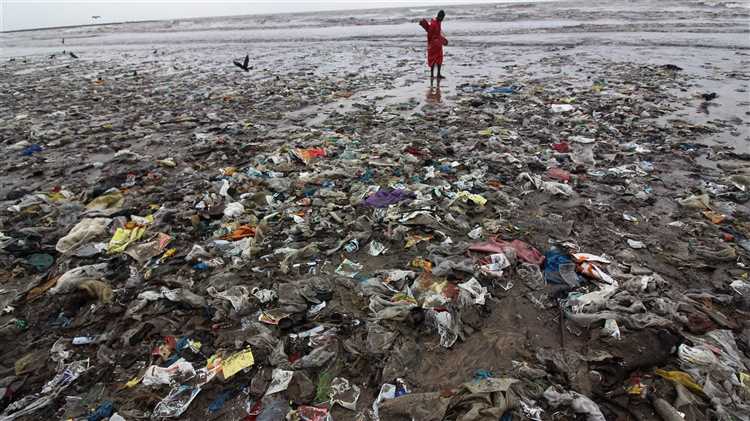
One of the key steps to promoting recycling and waste reduction is to educate the public about the environmental impact of plastic waste. By raising awareness about the harmful effects of plastic pollution, individuals can be motivated to reduce their plastic consumption and make more sustainable choices. This can be done through educational campaigns, workshops, and public service announcements.
Implementing Recycling Programs
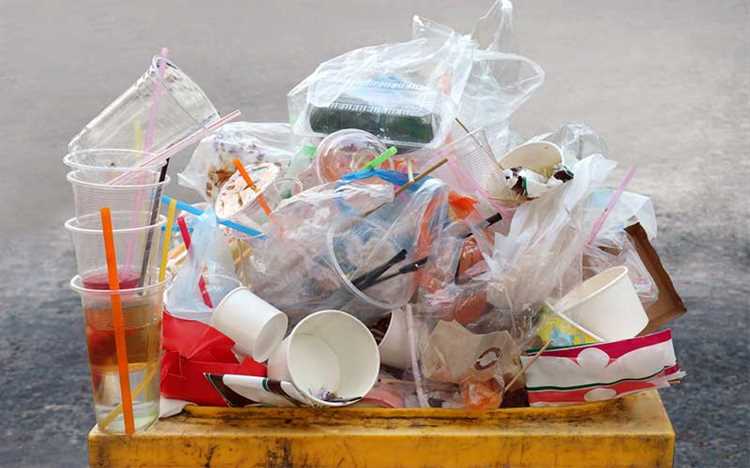
Establishing and enforcing recycling programs is crucial in reducing plastic waste. Governments and local authorities can work together to create and implement effective recycling systems that encourage individuals and businesses to recycle their plastic waste. This can include providing convenient recycling facilities, offering incentives to recycle, and implementing strict regulations for waste management.
Supporting Sustainable Alternatives
Another important strategy is to promote the use of sustainable alternatives to plastic. By investing in research and development, we can find innovative solutions to replace single-use plastics with biodegradable or compostable materials. Additionally, encouraging the use of reusable products such as cloth bags, metal water bottles, and glass containers can significantly reduce plastic waste.
Collaboration with Businesses
Engaging businesses in the effort to reduce plastic waste is essential. Encouraging companies to adopt sustainable practices, such as using eco-friendly packaging and implementing recycling programs, can make a significant impact. Collaborating with businesses to find innovative solutions and establish partnerships can help create a more sustainable future.
In conclusion, promoting recycling and waste reduction is crucial in addressing the issue of plastic waste. By educating the public, implementing recycling programs, supporting sustainable alternatives, and collaborating with businesses, we can work towards a more sustainable and plastic-free future.
Innovative Solutions to Combat Plastic Pollution
Plastic pollution has become a worldwide environmental crisis, affecting ecosystems, wildlife, and human health. Banning single-use plastics and promoting recycling are important steps towards reducing plastic waste. However, innovative solutions are also essential to combat this pressing issue. Here are some innovative solutions to fight against plastic pollution:
1. Biodegradable Alternatives
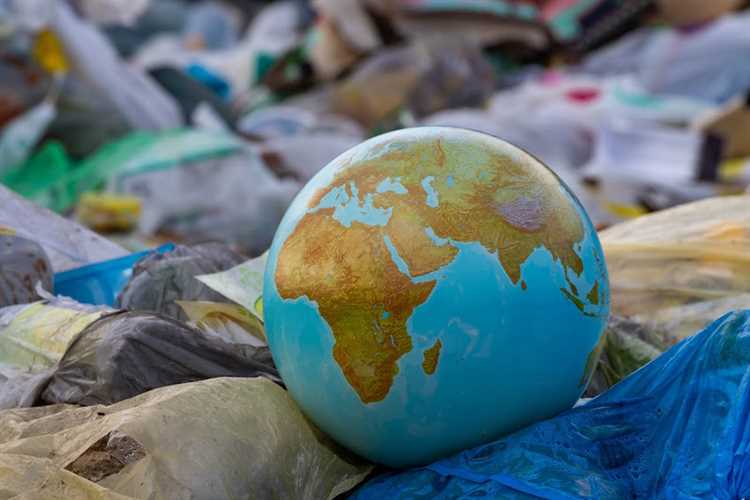
Developing and promoting biodegradable alternatives to single-use plastics is a promising solution. These materials can break down naturally in the environment, reducing the long-term impact of plastic waste. Biodegradable plastics made from renewable resources, such as plant-based polymers, offer a sustainable and environmentally friendly alternative.
2. Advanced Recycling Technologies
Advanced recycling technologies can play a vital role in reducing plastic pollution. Innovations such as chemical recycling and pyrolysis can break down plastic waste into its basic components, allowing for reused or repurposed materials. These technologies offer an efficient way to manage plastic waste and reduce its environmental impact.
Moreover, the development of recycling facilities and infrastructure can help increase the recycling rates and promote a circular economy, ensuring that plastic waste is properly managed and recycled.
3. Public Awareness and Education
Educating the public about the harmful effects of plastic pollution is crucial. Public awareness campaigns can help raise awareness about the consequences of plastic waste and encourage individuals to adopt sustainable practices. Promoting eco-friendly alternatives, such as reusable bags and water bottles, can also contribute to reducing plastic consumption.
4. Packaging Innovation
Improving packaging design and implementing innovative technologies can reduce plastic packaging waste. Adopting alternatives like biodegradable or compostable packaging materials, as well as exploring sustainable packaging options such as plant-based or recycled materials, can significantly reduce plastic pollution. Additionally, companies can invest in research and development to create packaging solutions that are not only environmentally friendly but also cost-effective.
Addressing the plastic waste crisis requires a multi-faceted approach. By developing and implementing innovative solutions, we can make a significant impact in combatting plastic pollution and safeguarding the environment for future generations.
Questions and answers:
What are the main environmental impacts of plastic waste?
The main environmental impacts of plastic waste include pollution of land and water, harm to marine life, negative effects on ecosystems, and contribution to climate change through the release of greenhouse gases during production and incineration.
How long does plastic take to decompose in the environment?
Plastic can take hundreds or even thousands of years to decompose in the environment, depending on the type of plastic and the conditions it is exposed to.
What are some solutions to reduce plastic waste?
Some solutions to reduce plastic waste include recycling, using alternative materials like glass or metal, promoting reusable products, implementing stricter regulations on plastic production and usage, and educating the public about the importance of reducing plastic waste.
Are there any negative effects of recycling plastic?
While recycling plastic is generally considered a positive solution, there can be negative effects such as the release of harmful chemicals during the recycling process or the inefficient recycling of certain types of plastics that end up in landfills.
How can individuals make a difference in reducing plastic waste?
Individuals can make a difference in reducing plastic waste by choosing reusable and eco-friendly products, participating in community clean-up efforts, diligently recycling, avoiding single-use plastics, and supporting businesses and organizations that have sustainable practices.